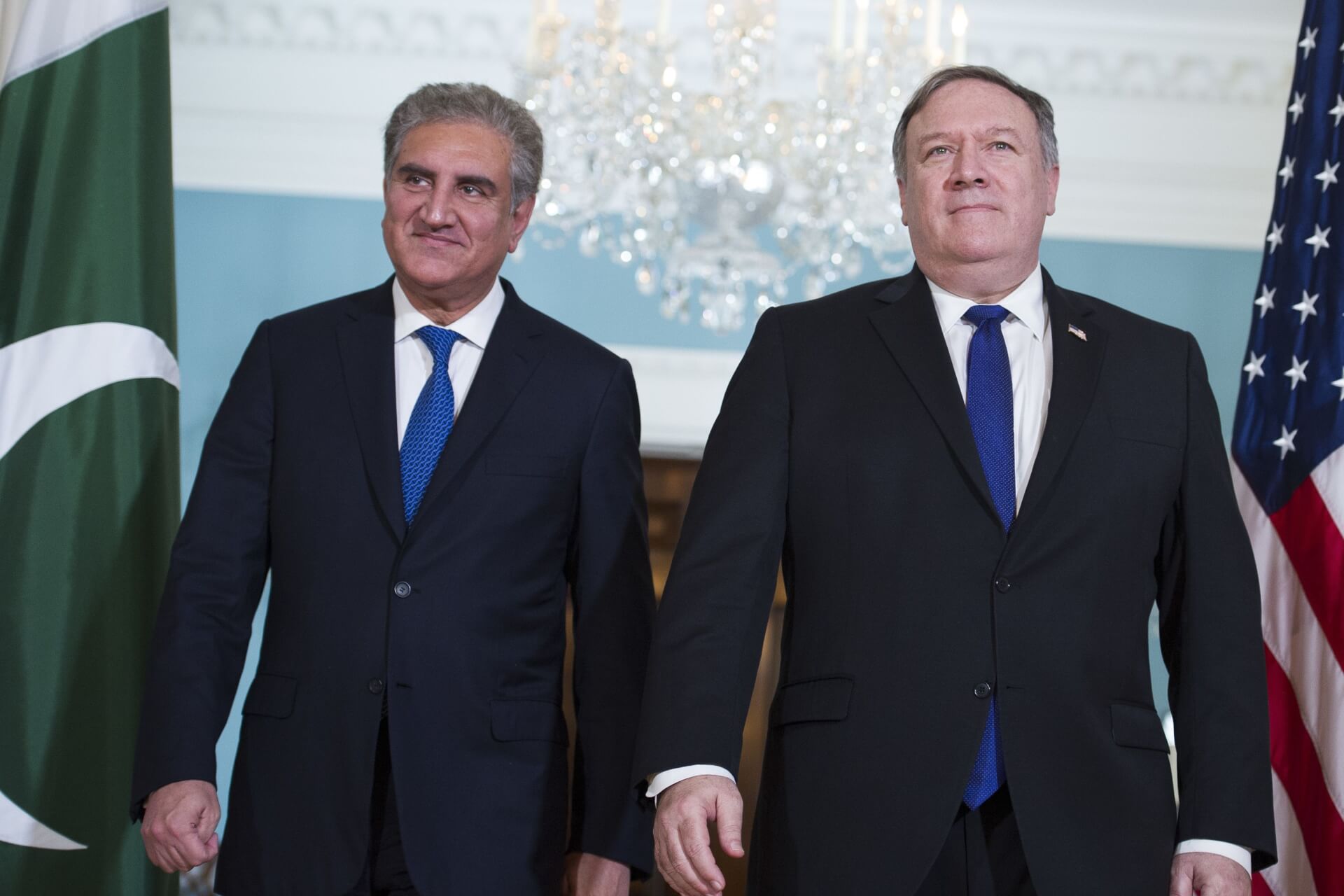On Saturday, in a telephonic conversation, US Secretary of State Mike Pompeo and Pakistani Foreign Minister Shah Mehmood Qureshi spoke on regional instability in Afghanistan. Cale Brown, the State Department’s Principal Deputy Spokesperson, said, “Secretary Pompeo and Minister Qureshi discussed a range of issues, including the importance of US-Pakistan cooperation on the Afghan peace process and the importance of efforts to support regional stability.” Mike Pompeo, too, tweeted about the conversation and called the discussion “productive.” Speaking on the crisis in Afghanistan, Qureshi assured his support for the peace process in the region.
Productive call with Pakistani Foreign Minister Shah Mahmood Qureshi today about continued cooperation on Afghan peace and the importance of supporting regional stability. I look forward to advancing our shared goals and increasing partnership.
— Secretary Pompeo (@SecPompeo) August 7, 2020
The State Department, in another statement, also said that the two leaders discussed “the importance of US-Pakistan cooperation on the Afghan peace process on the Afghan peace process and the importance of efforts to support regional stability.”
The conversation came as the loya jirga, a “grand assembly of elders”, which is a traditional body that includes elders, local leaders, and politicians, was to convene and decide on the release of 400 “hardcore” Taliban prisoners. The issue of prisoner releases has caused a standoff between the Afghani government and the Taliban since the conclusion of the peace talks. Pompeo said, “We acknowledge that the release of these prisoners is unpopular. But this difficult action will lead to an important result long sought by Afghans and Afghanistan’s friends” as it would lead to “reduction of violence and direct talks resulting in a peace agreement and an end to the war.” On Sunday, the Afghan government accepted the decision of the body to release the prisoners and work towards ending the violence that has persisted in the region for almost two decades.
Recently, Afghanistan raised the issue of cross-border firing by Pakistan before the UN. Afghanistan’s permanent representative to the United Nations (UN), Adela Raz, wrote to the United Nations Security Council (UNSC), raising a complaint regarding Pakistan’s “cross-border rocket firing” in Afghanistan. The letter said that the “issue of violations of Afghan territory by Pakistani military forces has continued despite numerous appeals made to the government of Pakistan, bilaterally and through other measures to cease their illegal and provocative activities in our sovereign territory.”
Also Read: Afghan Forces Regain Control of Prison in Jalalabad Attacked by IS Gunmen
While the American leaders did not specify any other topics that were discussed, Pakistan’s Foreign Office released a statement saying that Qureshi also brought up India’s actions in Kashmir with Pompeo. Pakistan has been pressuring Turkey to use its leverage in the Organisation of Islamic Cooperation (OIC)—the 57-member Organisation of Islamic Cooperation (OIC), widely considered to represent the collective voice of Muslim countries—to advocate Pakistan’s position on Kashmir. However, after these attempts were snubbed by Saudi Arabia, amongst other countries, Pakistan has threatened to unite other Islamic countries outside the OIC to gather support for their cause.
Also Read: India-Pakistan Differences Deepen Over Kashmir, Ram Mandir, and Terror-Funding
For the American leaders, with the Presidential elections coming up, the conversation with Pakistan, and the setting up of the loya jirga, was crucial, as President Donald Trump has promised to bring back more troops before the election. He said that the number would go below 5,000 by Election Day in November. Mike Pompeo also said that this decision is in pursuance of America’s commitment to reduce “the burden on the US taxpayer and the risk to the US troops”.
The conversation occurred one day after Pompeo’s chat with India’s Minister of External Affairs, S. Jaishankar, wherein the two decided to prepone the meeting of the Quad. The two leaders also “reiterated the strength of the United States-India relationship to advance peace, prosperity, and security in the Indo-Pacific and around the globe.” On the same day, the two leaders also attended a videoconference with the Foreign Ministers of Australia, Brazil, and Israel on collaborating on combatting the COVID-19 crisis in their countries.

